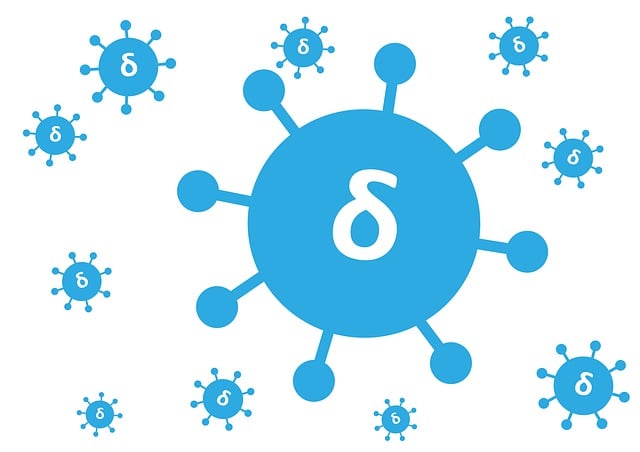Delta-9 THC, the psychoactive compound in cannabis, affects mood, memory, and pain perception with potential benefits like reduced anxiety and appetite stimulation but also carries risks of adverse reactions. In contrast, CBD is non-psychoactive, offering anti-inflammatory, analgesic, and neuroprotective properties for chronic pain, anxiety, sleep improvement, and more. While Delta-9 produces immediate intense effects, CBD offers subtler, longer-lasting relaxation without altering consciousness. Personal preferences, tolerance, and desired outcomes guide choices between these distinct compounds, with expert healthcare advice recommended.
Delta-9 THC and CBD are both cannabis compounds, but they offer distinct experiences. Understanding the differences between these substances is crucial for making an informed choice. In this article, we delve into the effects and considerations of delta-9 THC, explore the benefits and potential use cases of CBD, and compare these two compounds side by side. By considering key differences and personal factors, you can decide which one aligns best with your needs.
- Understanding Delta-9 THC: Effects and Considerations
- Exploring CBD: Its Benefits and Potential Use Cases
- Comparing Delta-9 and CBD: Key Differences to Look Out For
- Making an Informed Choice: Factors to Guide Your Decision
Understanding Delta-9 THC: Effects and Considerations

Delta-9 tetrahydrocannabinol (THC) is the primary psychoactive compound found in cannabis, responsible for the “high” associated with marijuana use. When consumed, delta-9 THC interacts with the endocannabinoid system (ECS), which regulates various bodily functions such as mood, memory, and pain perception. The effects of delta-9 THC can be both pleasant and unpredictable, varying greatly between individuals. Common short-term impacts include heightened sensory perception, increased appetite, relaxation, and altered time perception. However, it’s important to consider potential adverse reactions like anxiety, paranoia, and cognitive impairment, especially in those with pre-existing mental health conditions.
The legality and accessibility of delta-9 THC products also vary significantly by region, making it a complex choice for consumers. In areas where marijuana is legalized, delta-9 THC can be obtained through various methods, from smoking or vaping flower to edibles and concentrated forms. It’s crucial to start with low doses and monitor personal reactions due to the compound’s potency. Additionally, those considering delta-9 THC should research local laws and consult healthcare providers for guidance on safe usage practices.
Exploring CBD: Its Benefits and Potential Use Cases

CBD, or Cannabidiol, has gained significant attention in recent years as a natural compound with potential therapeutic benefits. Unlike its more well-known counterpart, Delta-9 THC, CBD is non-psychoactive, meaning it doesn’t produce the characteristic “high” associated with cannabis use. This makes it an appealing option for individuals seeking the potential health advantages of cannabis without the mind-altering effects.
One of the key benefits of CBD is its anti-inflammatory and analgesic properties, making it a popular choice for managing chronic pain, arthritis, and other inflammatory conditions. Research suggests that CBD may also aid in anxiety and stress reduction, improve sleep quality, and even have neuroprotective effects. Its versatility has led to its integration into various products, including oils, topicals, capsules, and edible treats, catering to a wide range of potential use cases from wellness to beauty routines.
Comparing Delta-9 and CBD: Key Differences to Look Out For

When comparing Delta-9 and CBD, it’s crucial to understand their key differences. While both come from the cannabis plant, they have distinct characteristics that set them apart. Delta-9, often referred to as THC (tetrahydrocannabinol), is known for its psychoactive properties, inducing feelings of euphoria and altering perception. It can also provide some therapeutic benefits like reducing anxiety and stimulating appetite. On the other hand, CBD (cannabidiol) doesn’t produce a “high” effect and is generally considered non-psychoactive. Instead, it offers potential medicinal advantages such as alleviating pain, reducing inflammation, and promoting relaxation without altering consciousness.
The differences extend beyond their effects. Delta-9 is associated with more immediate and intense sensations, while CBD’s effects are often subtler and can take a bit longer to manifest. Additionally, Delta-9 remains active in the body for a shorter period after consumption compared to CBD, which has a longer half-life. These distinctions are essential considerations when deciding between Delta-9 and CBD, as they can greatly impact individual experiences and preferences.
Making an Informed Choice: Factors to Guide Your Decision

When considering Delta-9 or CBD, making an informed choice depends on several factors. Firstly, understand that Delta-9 tetrahydrocannabinol (THC) is the primary psychoactive compound in cannabis, responsible for its intoxicating effects. It can induce feelings of euphoria and alter perception, memory, and coordination. On the other hand, cannabidiol (CBD) is a non-intoxicating compound known for its potential therapeutic benefits without the mind-altering properties.
Several considerations guide your decision. If you seek relaxation, stress relief, or sleep improvement, CBD may be preferable due to its calm and soothing effects. Delta-9, however, offers a more diverse range of experiences, from creative inspiration to physical pain management, thanks to its interaction with various endocannabinoid system receptors. Personal tolerance, frequency of use, and desired effects play significant roles too. Consulting healthcare professionals or seeking expert advice can also help clarify the right choice based on individual needs and health conditions.
When deciding between Delta-9 THC and CBD, understanding their distinct characteristics is key. While Delta-9 offers potent psychoactive effects, CBD is renowned for its calming and therapeutic benefits without any intoxicating properties. Both have their merits, depending on your desired outcome and personal preferences. By considering the outlined factors and exploring the potential uses, you can make an informed choice that aligns with your wellness goals. Remember, the right option is the one that best supports your unique needs, allowing you to harness the power of these compounds safely and effectively.
